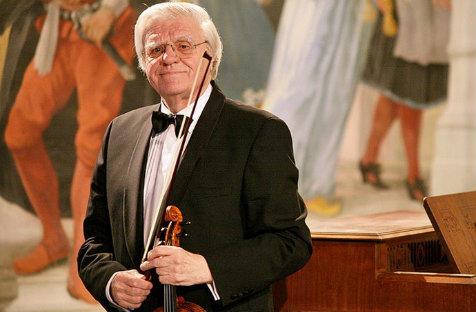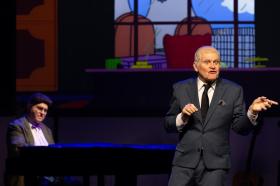Suk is an unfortunate name for a composer, especially for English audiences who have mislaid their monocles. Would Shakespeare, for instance, have become the near god of literature that he is if he had instead been named William Badpen? Given how lazy most scientists seem to be – where are our flying cars, where are our personal jetpacks? – the chance of magicking up a convenient form of time travel able to be used on such trivial matters makes the question impossible, in this supposed age of technology of ours, to answer. Thankfully, however, Josef Suk doesn’t live up to his name.
The Clancy Auditorium of the University of New South Wales seemed more full than usual, not that the usual crowd for an Australia Ensemble concert is to be scoffed at, mind you. Why this was so, I’ve no idea. Perhaps a few people were wandering about the top of the campus and, being caught in the furious deluge of rain that caught this critic somewhat unawares, decided to, rather than waiting it out under an exposed awning with the wind slapping their faces and the precipitation spitting on their clothes, give classical music a go. (‘I know how much we enjoy catching colds, Maud, but why don’t we give this violin-thing a try?’) Or perhaps, Dvorak being in the program, they came enthusiastically. (After all, whoever laments to themselves, ‘oh, no, another Dvorak!’) Or, perhaps, being seated in a more central position than one was last time, I was thus more sufficiently surrounded by humanity, and so my estimates of the crowd size are merely an optical illusion. Who knows, dear reader, who knows?
Josef Suk’s Piano Quartet in A minor Op 1 was the first piece on the program, and succeeded in being a compact work of pleasing contrasts, played with much attention to the drama. The program tells us that ‘as might expected, the Piano Quartet does not represent Suk’s mature style,’ with the ‘Opus 1 attached to the composi[tion]…not an expression of mature caution or modesty. It correctly indicates its very early date in his compositional history.’ And so it is, but it was given the best possible outing by the four musicians.
Ross Edwards, whose 70th birthday it is this year – and so we can presumably expect to see much more of him as these anniversary months slip by – was in attendance for the performance of the next piece, namely his Ecstatic Dances transcribed by Roger Armstrong for flute and clarinet. (It was originally for two flutes.) Here the flute and clarinet kept the acrobatic ball in the air over two sections (or dances), with the second involving much more overlap of the two instruments than the first. It was a somewhat delightful, slightly hypnotic piece, though nothing to shatter the soul.
Witold Lutoslawski’s Dance Preludes (for flute, oboe, clarinet, horn, bassoon, violin, viola, cello, and double bass), celebrating Lutoslawski’s 100th birthday (not that he’s still alive), came next. These types of works, and Lutoslawski’s style, are as much musically interesting as they are visually. There’s a wonderful sense of complex unity when one gets to observe a multitude of musicians operating somewhat independently from each other, as if one were watching a mechanical loom or a Rube Goldberg machine. The piece itself – of five movements – was played with great precision and inertia, and left a pleasing mark on the ear.
After the interval came Dvorak’s String Quintet in G major Op 77, which was the major work of the night. (Here the late opus number is a lie of the publisher, whereas it should actually be – as the composer wanted it – 18.) Very impassioned, and thoroughly enjoyable. The concert, however, ended before the two hour mark (not that one is complaining, for you can often have your fill of music before then), perhaps to make up for the longest-concert-in-Australia-Ensemble-history given last month. And then it was back into the cold and rain.
Rating: 4 stars out of 5
Concert 2
Australia Ensemble
Guest artists: Huw Jones, oboe; Robert Johnson, horn; Andrew Barnes, bassoon: Kees Boersma, double bass
Josef Suk – Piano Quartet in A minor Op 1
Ross Edwards – Ecstatic Dances
Witold Lutoslawski – Dance Preludes
Antonin Dvorak – String Quintet in G major
Clancy Auditorium, University of New South Wales
20 April





